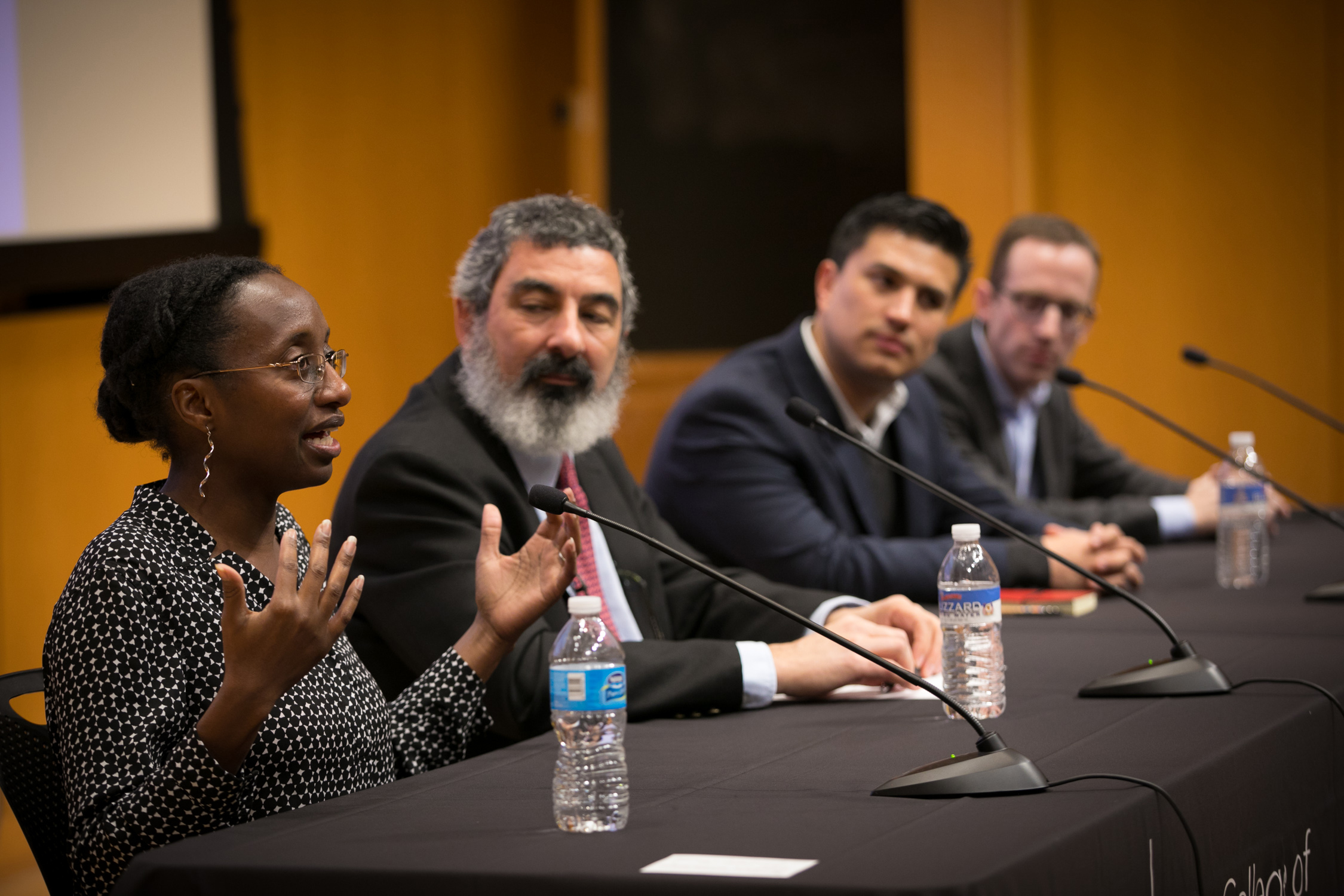Faculty give their take on an unsettling presidential election
By Barbara Esuoso

Anxiety, distrust, rigged elections, polarization, demographic change and racial resentment are all themes surrounding America’s 2016 presidential election, according to a Nov. 1 panel discussion, “History in the Making: Cornell Perspective on Election 2016,” moderated by Gretchen Ritter ‘83, the Harold Tanner Dean of Arts and Sciences.
An audience of alumni, students, faculty and staff gathered in Rhodes*Rawlings Auditorium in Klarman Hall while more than 100 alumni tuned in via live stream to ask questions of a panel of four Cornell faculty members. Questions ranged from the significance of Supreme Court appointees to the role of pre-presidential debates and the prevalence of racial anxiety in the U.S.
According to panelist Jamila Michener, assistant professor in the Department of Government, the numerous issues that the U.S. faces raises the question of how America can be governed.
“The rise of white nationalism, which [is at] levels we have not seen for a very long time, the number of people who express being afraid of demographic change in the U.S., or afraid of women having more political power than men – unless these spheres are dealt with it’s not clear how we’re going to be able to be governed in the same polity, especially with the amount of partisan polarization that we have now,” said Michener.
In the wake of the Obama presidency, racial inequality persists, according to Michener. It has been amplified so that more areas, such as health care, are now racialized by their association with Obama, she said.
Panelist Sergio Garcia-Rios, assistant professor in the Departments of Government and Latino/a Studies, said that while there are important differences within the Latino community as a result of generation gaps and different countries of origin, immigration is still one of the main topics of concern for most immigrants, even across generations. “But they are also very concerned with the environment, health care and the economy, which tends to align them ideologically,” he said.
Bruce Lewenstein, chair and professor of science and technology studies and professor of communication, spoke about racialized technological measures taken to prevent a “rigged election.”
About 15 states have passed voter ID laws in recent years even though studies have shown that out of a billion votes in the last 15 years, there have only been about 31 fraudulent ones, Lewenstein said. Voter ID laws historically have been tools “designed to build or maintain social categories or social power” that exclude African-Americans, Hispanics and Native Americans from voting.
“We need to talk about the underlying issues more, rather than focusing on technology [to solve problems],” Lewenstein said.
The panel also discussed the “agenda-setting function” of the presidential debates, which influence the political subject matter being addressed in the media and society, according to Lewenstein.
Michener added that the particular “fact-checking” theme that has carried throughout the three debates has raised concern about the benefit of debates for Americans.
“I worry about what the American public can draw from the debates when there is so little overlap in our basic understanding of what is true and what is false,” she said.
“The question after each debate was always who do you think won rather than what have you learned,” added Adam Seth Levine, assistant professor of government.
As for the future course of American politics, Levine said American society “needs to discuss more politics and be more politically engaging,” to which Michener added that America has seen a “further crumbling of civil discourse, which does not bode well for addressing the issues in a productive way.”
Barbara Esuoso ’19 is a writer intern for the Cornell Chronicle.
Media Contact
Get Cornell news delivered right to your inbox.
Subscribe